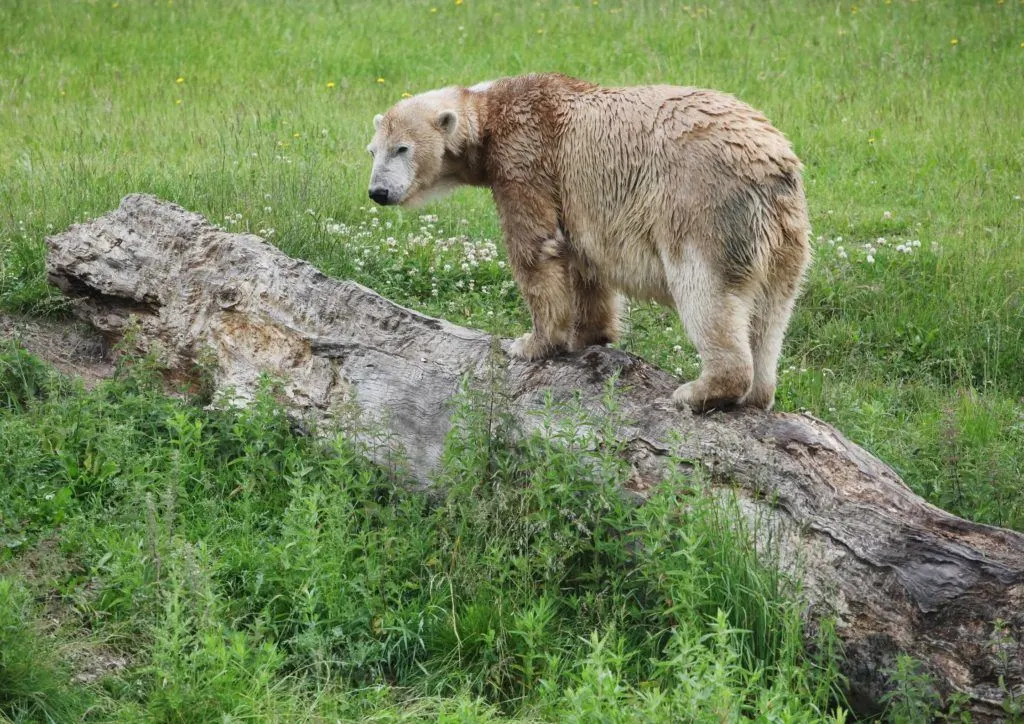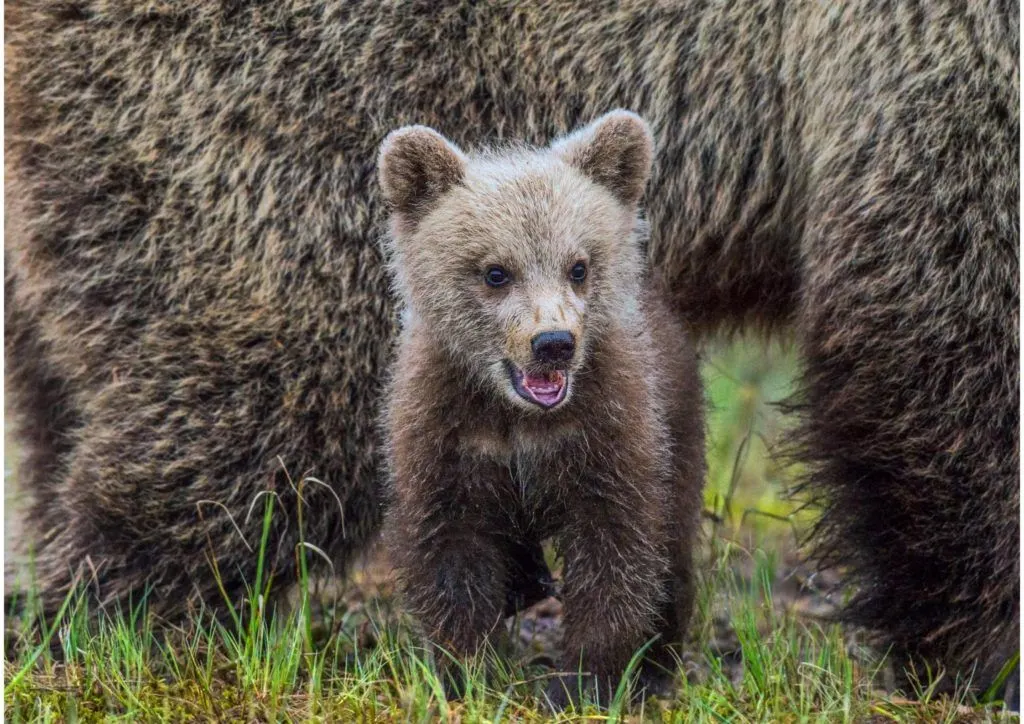Yes, bear meat is edible and mostly consumed by native hunters. And it is very much legal to hunt bears in Alaska – for residents and non-residents. But much like everything else that’s legal (or illegal), it comes with a whole set of terms and conditions for each different circumstance.
Can visitors/non-residents go hunting? What types of bears are illegal to hunt? Let’s look at all those facts together, shall we?
Main Types Of Bears In Alaska

Alaska mainly has four kinds of bears. Brown Bears (Ursus arctos), Black Bears (Ursus americanus), Grizzly Bears (Ursus arctos horribilis) – and not forgetting the Polar Bears (Ursus maritimus).
The brown bears and the grizzlies are pretty much the same. But, brown bears usually live near the coast, consuming fish and whatever fresh seafood is available on the day’s menu while the grizzlies roam the interior landscapes closer to the woodlands.
Both kinds of bears can be seen in most parks in Alaska. The Lake Clark National Park & Preserve and Katmai National Park & Preserve will offer you many opportunities to spot one or more.
The Black bear is smaller in size – it is in fact the smallest bear in North America. They grow up to 60 inches, from nose to tail, weighing about 180-200 pounds on average. You can spot them mostly in Alaska’s forested areas.
And then there are the Polar Bears. These majestic, cuddly-looking yet dangerous furry beings are categorized as marine mammals.
Spotting polar bears in Alaska won’t be easy. But you can try your luck in Arctic parks like Cape Krusenstern National Monument and Bering Land Bridge National Preserve.
Is It Legal To Hunt Bear In Alaska?
Yes, it’s legal to hunt bears in Alaska. But you are required to have a legit hunting license to hunt black bears as well as brown/grizzly bears. Some black bear hunts require a harvest ticket and registration/drawing permits.
If you are visiting Alaska (a non-resident basically), and you are planning a brown/grizzly bear hunting trip (the hunting season usually falls between September to December), you are required to be personally accompanied by an Alaska-licensed guide or an Alaskan resident aged 19 or above.
If you are going Black Bear hunting (the season usually falls between September to June), guides are only needed for certain types of hunts.
No matter what type of bear hunting you are planning on, make sure to have suitable locking tags.
Bear in mind (no pun intended – or was it?) that not all hunting seasons are open to non-residents even if they are following all the hunting conditions.
So if you are planning a bear hunting trip, check with the regional wildlife department to confirm that you are in line with all the terms and conditions to avoid any legal trouble.
You might be interested in Bears in Colorado
Eating Bear In Alaska
Is it legal, and more importantly, is it fit for dinner?
As we said before, it is legal to hunt and eat bear meat – these practices go way back. Although there are many bear hunters, not everyone has a positive opinion about consuming bear meat.
Bear meat is game meat. And like all game meat, bear meat has lower calories and saturated fat, and they are generally safe from any mixed additives. Many hunters agree bear meat is a challenge to cook. It has to be cooked with a lot of care especially when it comes to making it palatable.
It might throw you off right away – however, if you do dress the meat the right way and cook it expertly, you can actually enjoy bear meat really well.
Hunters who did it right go as far as to say that it is absolutely delicious and they would consume it every chance they get.
Many agree that Black Bear meat is delightful and super versatile. Since they feed exclusively on vegetation, their meat tends to have a sweeter taste.
Grizzlies and brown bears on the other hand might not be as easy to make a dish out of – especially if you are a novice cook.
Hunters claim that bears who consume fish or even other dead carcasses tend to have a completely different flavour in their meat. And that flavour can go as far as making the whole meat completely inedible.
Whatever type of bear is being cooked, the meat should always be prepared really well to avoid Trichinosis (Parasitic bacteria found in raw bear meat).
Failing to cook it thoroughly for at least 20-25 minutes at 375 °F (190°C) will only result in nausea and diarrhoea joining the party – and we don’t want that.
You might be also interested in: Does Alaska have Snakes? | Can you eat Wolf in Alaska?
Type Of Bears You Cannot Hunt In Alaska

It is illegal to shoot bear cubs or females with bear cubs – irrelevant of whether you are a resident or non-resident on a bear hunt.
In fact, people who have been long-time hunters condemn the killing of cubs and females with cubs, as a real hunt requires the game to have a fair chase.
However, there are certain regions where even cubs are fair game when they emerge for spring.
Thanks to the Marine Mammal Protection Act, Polar bears can only be hunted by native Alaskans for subsistence.

